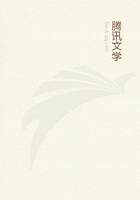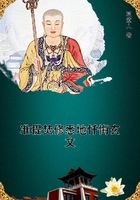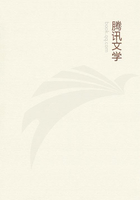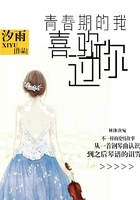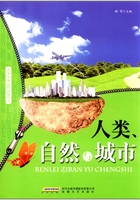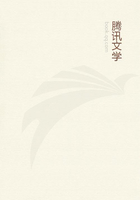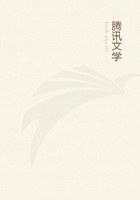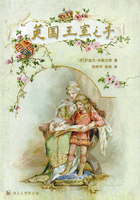VI. But in the state of nature, if a man, and woman contract so, as neither is subject to the command of the other, the children are the Mothers for the reasons above given in the third Article, unlesse by pacts it be otherwise provided. For the Mother may by pact dispose of her Right as she lists, as heretofore hath been done by the Amazons, who of those children which have been begotten by their neighbours, have by pact allowed them the males, and retained the females to themselves; but in a civill government, if there be a contract of marriage between a man and woman, the children are the Fathers; because in all Cities, viz. constituted of Fathers, not Mothers governing their families, the domesticall command belongs to the man, and such a contract, if it be made according to the civill Laws, is called MATRIMONY; but if they agree only to lye together, the children are the Fathers, or the Mothers variously, according to the differing civill Lawes of divers Cities.
VII. Now because by the third Article the Mother is originally Lord of her Children, and from her the Father, or some body else by derived Right, it is manifest that the Children are no lesse subject to those by whom they are nourisht, and brought up, then Servants to their Lords, and Subjects to him who beares the Supreme Rule; and that a Parent cannot be injurious to his Sonne as long as he is under his power. A Son also is freed from subjection on the same manner as a subject and servant are. For emancipation is the same thing with manumission, and abdication with banishment.
VIII. The enfranchised son, or released servant, doe now stand in lesse fear of their Lord and Father, being deprived of his naturall and lordly power over them, and (if regard be had to true and inward Honour) doe Honour him lesse, then before. For Honour (as hath been said in the section above) is nothing else but the estimation of anothers power; and therefore he that hath least power, hath alwayes least Honour. But it is not to be imagin'd that the enfranchiser ever intended so to match the enfranchised with himself, as that he should not so much as acknowledge a benefit, but should so carry himself in all things, as if he were become wholly his equall; It must therefore be ever understood, That he who is freed from subjection, whether he be a servant, sonne, or some colony, doth promise all those externall signes, at least whereby Superiours used to be Honour'd by their inferiours. From whence it followes, That the precept of honouring our Parents, belongs to the law of nature, not onely under the title of Gratitude, but also of Agreement.
IX. What then, will some one demand, is the difference between a sonne, or between a subject, and a servant? Neither doe I know that any Writer hath fully declared what liberty, and what slavery is. Commonly to doe all things according to our own phancies, and that without punishment, is esteem'd to be liberty; not to be able to doe this, is judg'd bondage; which in a Civill Government, and with the peace of mankind cannot possibly be done, because there is no City without a Command, and a restraining Right. LIBERTY, that we may define it, is nothing else but an absence of the lets, and hinderances of motion, as water shut up in a vessell is therefore not at liberty, because the vessell hinders it from running out, which the vessell being broken, is made free. And every man hath more or lesse liberty, as he hath more or lesse space in which he employes himself: as he hath more liberty, who is in a large, then he that is kept in a close prison. And a man may be free toward one part, and yet not toward another; as the traveller is bounded on this, and that side with hedges, or stone walls, lest he spoyle the vines, or corne, neighbouring on the high way. And these kinde of lets are externall, and absolute; in which sense all Servants, and Subjects are free, who are not fetter'd and imprisoned. There are others which are arbitrary, which doe not absolutely hinder motion, but by accident; to wit, by our own choyce, as he that is in a ship is not so hindered, but he may cast himselfe into the Sea, if he will: and here also the more wayes a man may move himselfe, the more liberty he hath, and herein consists civill liberty; for no man, whether subject, sonne, or servant, is so hindred by the punishments appointed by the City, the Father, or the Lord, how cruell soever, but that he may doe all things, and make use of all meanes necessary to the preservation of his life and health. For my part therefore I cannot finde what reason a meer servant hath to make complaints, if they relate onely to want of liberty, unlesse he count it a misery to be restrained from hurting himselfe, and to receive that life, (which by warre, or misfortune, or through his own idlenesse was forfeited) together with all manner of sustenance, and all things necessary to the conservation of health, on this condition only, that he will be rul'd: for he that is kept in by punishments layd before him, so as he dares not let loose the reines to his will in all things; is not opprest by servitude, but is governed and sustained. But this priviledge free subjects and sonnes of a family, have above servants, (in every government, and family, where servants are) that they may both undergoe the more honourable offices of the City or family, and also enjoy a larger possession of things superfluous. And herein layes the difference between a free subject, and a servant, that he is FREE, but a SERVANT is he who also indeed, who serves his City onely; serves his fellow subject: all other liberty is an exemption from the Lawes of the City, and proper only to those that bear Rule.

